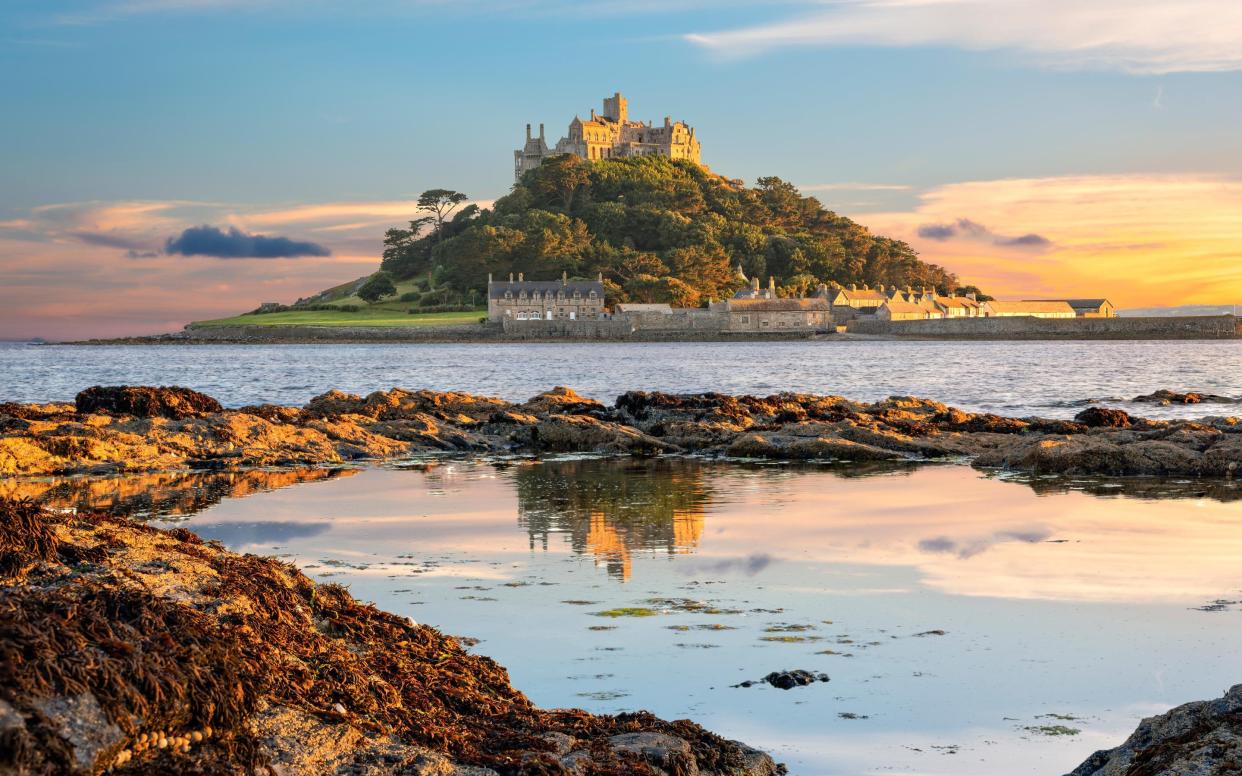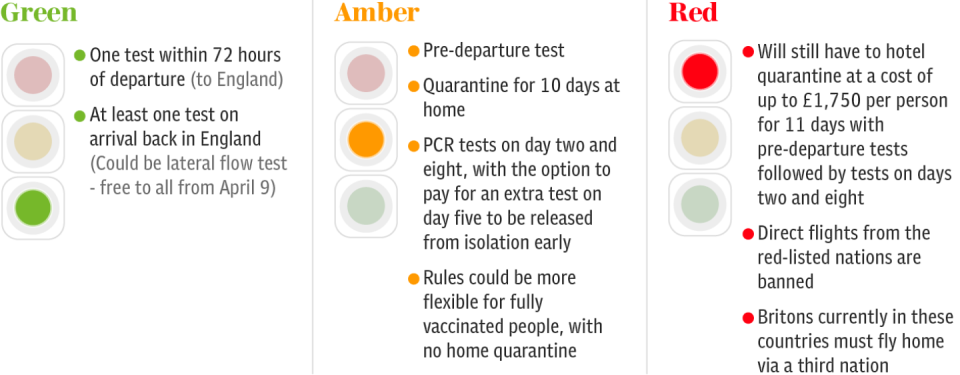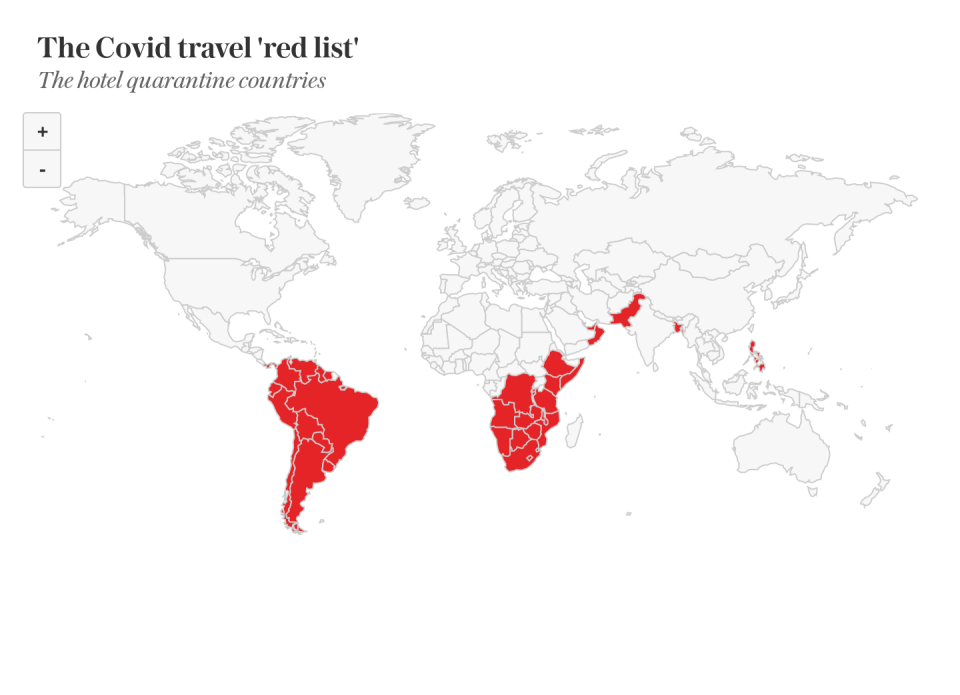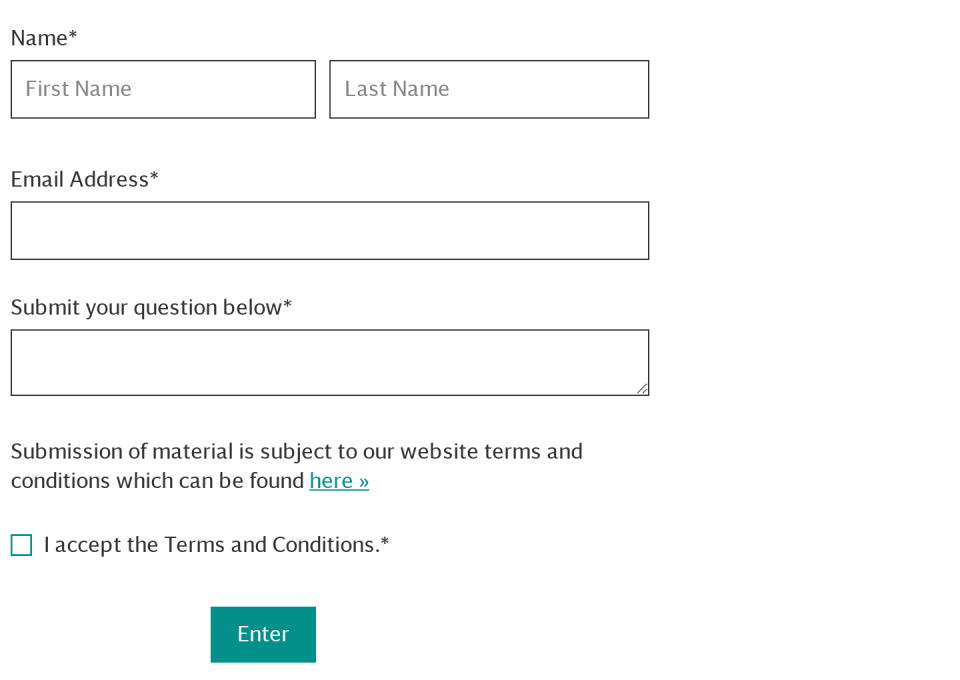What does the latest government announcement mean for our summer holidays?

- Oops!Something went wrong.Please try again later.
To the huge frustration of holidaymakers and the travel industry in general, the Prime Minister is still unable to tell us for sure where or when we will be able to travel abroad again. Foreign holidays remain illegal until at least May 17 and Boris Johnson has reconfirmed official advice not to book such holidays “until the picture is clearer.”
This leaves hundreds of thousands of travellers who have bookings for family holidays during the Whitsun half term break (the first week of June) in deep uncertainty and many more unsure as to whether their summer holidays will be able to go ahead. The Prime Minister was also unable to tell us how much notice would be given for the resumption of international travel, though he did say that the Government’s Global Travel Taskforce publishes will be reporting “later this week”, so we may know more then.
We do now know that an official “green” category will be added to the traffic light system which already includes red and amber ratings. The colours relate to the rules on quarantine and testing for returning travellers and destinations will be rated green where no self isolation will be required- although pre-departure and post-arrival tests would still be needed.

However, no indication has yet been given as to which countries are likely to be rated green or amber. So we still don’t know the likely status of the key holiday destinations in the Med, including Spain, Greece, Italy, France and Turkey. There was also no further specific information on “vaccination passports” and how they might be used, though the Prime Minister did suggest that testing would also be an important part of re-opening international travel.
The good news is that the next stage of easing the lockdown – from April 12 – means that self-catering accommodation in England, as well as many outdoor attractions will re-open as planned. The proposed re-opening of hotels and indoor hospitality on May 17, also looks on track, although it won’t be confirmed until the week before.
But if you are hoping for a foreign holiday this summer, or have already booked one, you may have to endure a few more weeks of uncertainty yet. Here are some key questions answered in the meantime.
My holiday destination is in the red zone, should I now cancel?
If you have a holiday booked and it looks as though government restrictions won’t allow you to travel after all, don’t cancel your arrangements unilaterally. If you do, you risk undermining your right to a refund. Instead, wait until your tour operator makes the cancellation - then you are legally entitled to get your money back (see below). Decisions will probably be made for departures in the second half of May and June, in late April and will most likely apply to countries in the red zone.
Legally speaking, it isn’t clear whether operators would be obliged to cancel holiday to a destination in an Amber zone, but many probably will Andrew Flintham, CEO of Tui, implied today that it would be cancelling holidays in such a case. The good news is that many tour operators and airlines have been introducing far more flexible booking conditions, which allow you to postpone your trip, in some cases until late 2022. So rather than wait for any uncertainty to be resolved, you might prefer to rebook for a later date.

Should I book to travel after May 17?
The government continues to advise people not to book and such is the uncertainty over which, if any, destinations will reopen, that it’s probably wise to heed that advice. Certainly, if you are hoping to travel in the early part of the summer – before the school holidays begin in late July – then you are probably better off waiting until three or four weeks ahead of departure before booking. And it is definitely worth holding until after the next Government update, due when the Travel Taskforce publishes its report later this week. If you wait, you can at least choose your destination based on the most up to date information and reduce the risk of cancellations or amendments. Frankly, apart from the half term break (first week in June), it is unlikely that you will have much difficulty finding availability, though prices to destinations rated green, may start to rise. If you are thinking of booking for the summer peak season then do so only with your eyes open (see Precautions, below).
If I do book, what precautions should I take?
Check the company’s cancellation policy. Many airlines and operators are now offering much more flexible booking conditions and free postponements. BA Holidays, for example, is allowing new bookers to change dates and destination without incurring a fee, although you will need to pay any difference in price. This applies to journeys that are due to have been completed by Aug 31, 2021. Also, make sure that your tour operator is bonded so that your money is protected if it goes out of business. I also recommend booking going with an operator which is an Abta (abta.com) or Aito (aito.co.uk) member – all holidays are bonded and the two organisations have a code of conduct and a dispute resolution service if things go wrong.
The balance payment for my summer holiday is due. Should I pay up or not?
This is the great dilemma that so many people faced last summer. You have already paid the ten per cent deposit for a package holiday - should you pay the balance when it becomes due (usually 8-12 weeks before departure)? If you don’t, you forfeit the holiday and your deposit. If you do pay out you may end up not being able to travel and having to claim the money back. As a first step always talk to the operator to see if they will be flexible about payment dates (some are saying they will) and, if you are averse to the uncertainty, it may be worth asking to postpone the whole booking until later this year or next.
Should I book a holiday in the UK instead?
The Government has now confirmed that self-catering accommodation can re-open on April 12, and it looks very likely that hotels and b&bs will do so on May 17. Because of the continuing doubts over foreign travel, there is already huge pressure on accommodation in Britain this summer. So while staying in the UK will give you much more certainty, but it may be a relatively expensive option than a foreign holiday, because prices have soared here and remain depressed in the Mediterranean. That said, if you do want to be sure of getting somewhere decent to stay in Britain – and you can find some availability – it’s worth reserving it now. Though do check the cancellation policy in case for some reason, such as new tier restrictions, self-isolation, illness etc, you can’t make it at the last minute.
I was due to travel before May 17, will I get my money back?
Current government advice means that tour operators are obliged to cancel your holiday if you are booked to travel before May 17 and in such cases they must offer a refund. The situation with flight bookings is slightly different. If a flight is cancelled by the airline then you are entitled to a refund. If it still operates and you booked it with the airline or through an agent without any linked holiday arrangements such as a hotel booking, then you may not be legally entitled to a refund. However, in these cases airlines are generally allowing passengers to claim a voucher or rebook for a later date.
Have your say
Do you have a question that we haven't answered? Leave your question in the form below.


